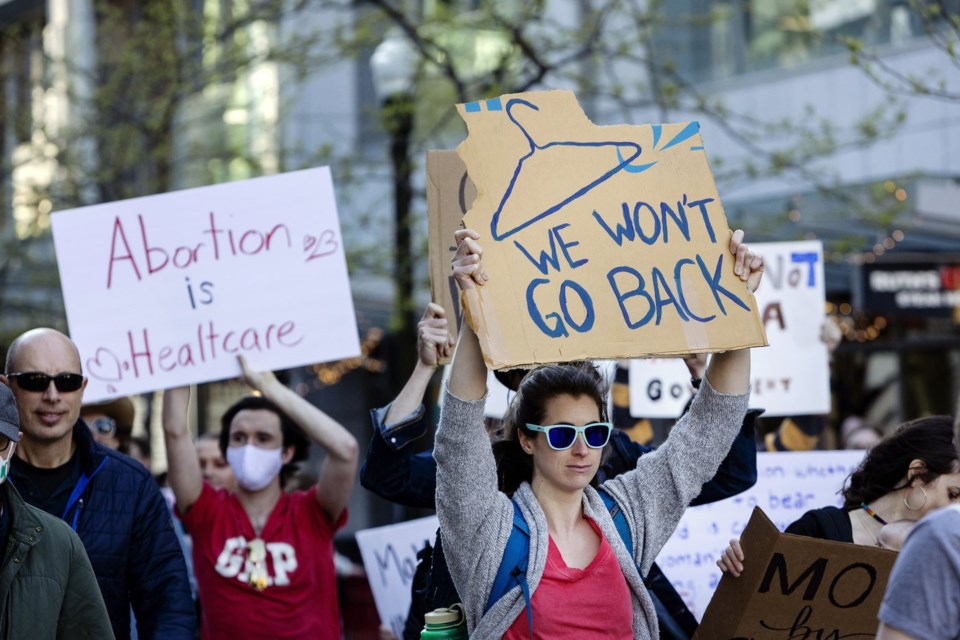BOISE, Idaho (AP) ŌĆö A federal appeals court is expected to hear arguments Tuesday afternoon over whether Idaho should be prohibited from enforcing a strict abortion ban during medical emergencies when a pregnant patient's life or health is at risk.
The state law makes it a felony to perform an abortion unless the procedure is necessary to prevent the death of the patient. President BidenŌĆÖs administration two years ago, contending the law violates a federal rule called the Emergency Medical Treatment and Labor Act, or EMTALA, because it prevents doctors from performing abortions that save their patients from serious infections, organ loss or other major medical issues.
The U.S. Supreme Court heard the case earlier this year, but bounced it back to the lower court on a procedural issue, leaving unanswered of the state abortion ban.
Idaho officials have argued in court filings that the state abortion ban doesnŌĆÖt violate EMTALA. Instead, they say the fetus or embryo should be considered a patient with protections under EMTALA as well. They also argue that doctors have enough wiggle room under the law to use their best judgment about when to treat pregnant people with life-threatening medical conditions.
ŌĆ£Taking EMTALA for what it actually says, there is no direct conflict with IdahoŌĆÖs Defense of Life Act,ŌĆØ attorneys representing the Idaho Legislature wrote in court filings earlier this month. ŌĆ£Nothing in EMTALA requires physicians to violate state law. And nothing in Idaho law ŌĆö whether in EMTALA-covered circumstances or beyond ŌĆö denies medical care to pregnant women.ŌĆØ
About 50,000 people in the U.S. develop life-threatening complications during pregnancy each year. Those complications can include major blood loss, sepsis, or the loss of reproductive organs. In rare cases, doctors might need to terminate a pregnancy to protect the health of the pregnant person, especially in cases where there is no chance for a fetus to survive.
But some state abortion bans have made medical decisions that once seemed clear for emergency room physicians. Complaints that from U.S. emergency rooms spiked in 2022 after the U.S. Supreme Court .
ŌĆ£These harms are not hypothetical,ŌĆØ Idaho's largest hospital system, St. Luke's Health System, wrote in a friend-of-the-court brief in October. ŌĆ£In all of 2023, before Idaho's law went into effect, only one pregnant patient presenting to St. LukeŌĆÖs with a medical emergency was airlifted out of state for care. Yet in the few months when IdahoŌĆÖs new abortion law was in effect, six pregnant St. LukeŌĆÖs patients with medical emergencies were transferred out of state for termination of their pregnancy.ŌĆØ
One of those patients had severe preeclampsia ŌĆö a condition that causes dangerously high blood pressure that can be fatal if untreated ŌĆö and the others had premature rupture of their membranes, putting them at risk of life-threatening infections, St. Luke's said.
ŌĆ£The stakes could not be higher,ŌĆØ ACLU Reproductive Freedom Project Deputy Director Alexa Kolbi-Molinas said Monday. She noted recent news reports in Texas about women who died after being denied appropriate treatments for incomplete miscarriages. ŌĆ£The reality is, exceptions don't work. They don't actually protect the health and rights of pregnant people regardless of what is written on the page, and that is just the reality when you threaten physicians with criminal penalties.ŌĆØ
Rebecca Boone, The Associated Press



